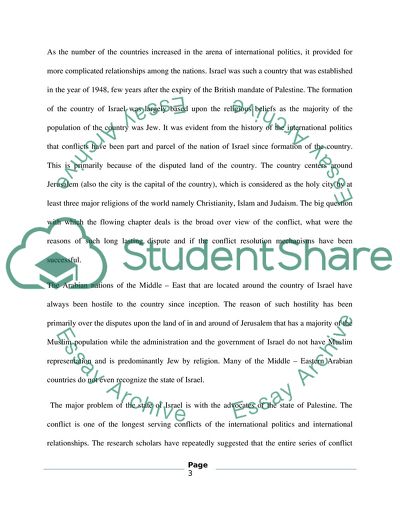Cite this document
(Arab Israeli Conflict Case Study Example | Topics and Well Written Essays - 2000 words, n.d.)
Arab Israeli Conflict Case Study Example | Topics and Well Written Essays - 2000 words. Retrieved from https://studentshare.org/politics/1736937-arab-and-isarel-conflict
Arab Israeli Conflict Case Study Example | Topics and Well Written Essays - 2000 words. Retrieved from https://studentshare.org/politics/1736937-arab-and-isarel-conflict
(Arab Israeli Conflict Case Study Example | Topics and Well Written Essays - 2000 Words)
Arab Israeli Conflict Case Study Example | Topics and Well Written Essays - 2000 Words. https://studentshare.org/politics/1736937-arab-and-isarel-conflict.
Arab Israeli Conflict Case Study Example | Topics and Well Written Essays - 2000 Words. https://studentshare.org/politics/1736937-arab-and-isarel-conflict.
“Arab Israeli Conflict Case Study Example | Topics and Well Written Essays - 2000 Words”. https://studentshare.org/politics/1736937-arab-and-isarel-conflict.


